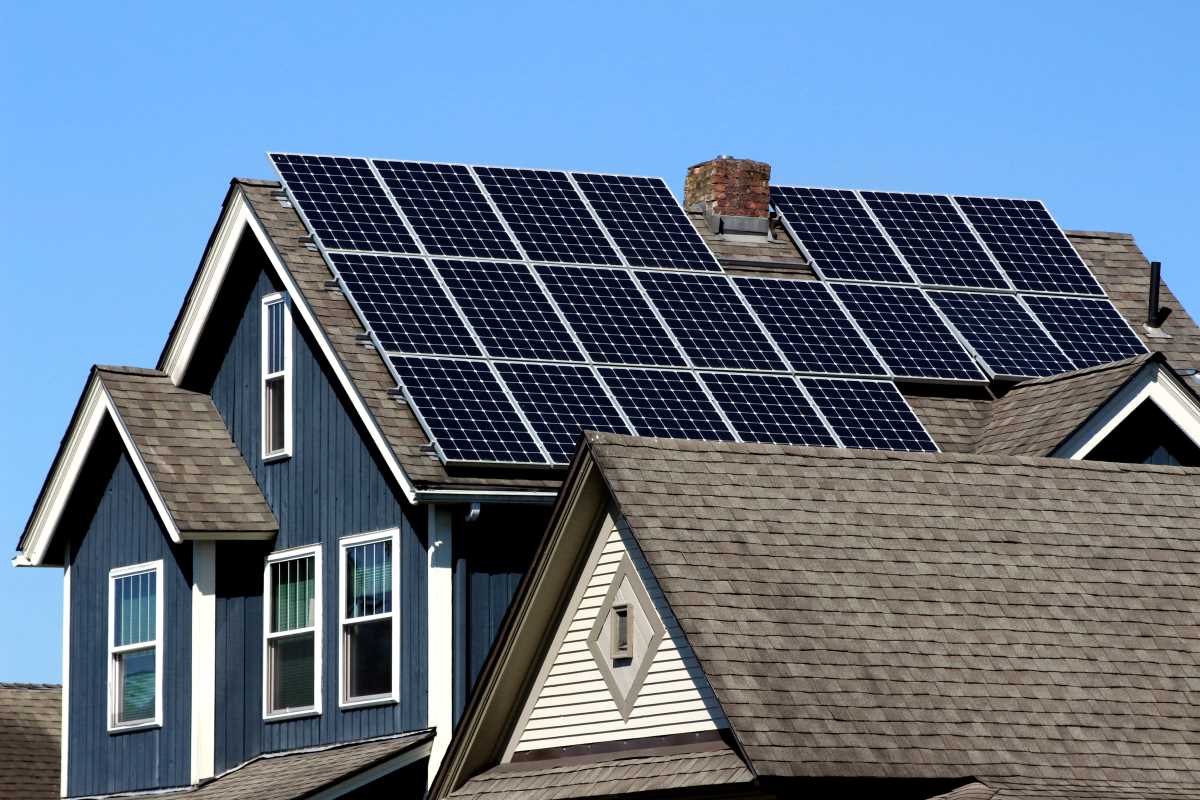Making your home more eco-friendly doesn’t have to break the bank. On the contrary, many green initiatives save money in the long run while helping protect the planet. Whether you're just getting started or looking to upgrade your current lifestyle, small tweaks can lead to big changes. From installing solar panels to adopting mindful habits, this guide will show you practical ways to save money while going green at home.
Energy Efficiency
Reducing energy consumption is one of the simplest ways to live greener and save money. Here’s how you can do it effectively:
- Seal Air Leaks: Drafty doors and windows allow air to escape, forcing your heating and cooling systems to work harder. Seal gaps with weatherstripping or caulk to keep your home comfortable year-round.
- Switch to LED Bulbs: LEDs use up to 90% less energy than traditional incandescent bulbs and last significantly longer. Upgrading your lighting reduces both your electricity bill and waste.
- Use Smart Thermostats: Programmable or smart thermostats adjust temperatures automatically based on your schedule, ensuring efficient energy use. You can lower heating and cooling costs without lifting a finger.
- Unplug Electronics: Devices like TVs, chargers, and coffee makers consume energy even when turned off. Use a power strip to unplug multiple devices at once and eliminate “phantom” energy drain.
Financial Benefits: These upgrades often pay for themselves quickly. For instance, switching to LED bulbs throughout your home could save hundreds of dollars annually.
Solar Panels
If you’re ready for a significant step toward renewable energy, solar panels may be the perfect solution. While the upfront costs might seem intimidating, they’re more affordable than you might think. Plus, the long-term benefits are hard to beat.
- Tax Incentives and Rebates: Many governments offer tax credits or rebates for installing solar panels, significantly reducing the initial cost. Programs like net metering can also allow you to sell excess power back to the grid.
- Lower Electricity Bills: Once installed, solar panels can drastically slash electricity bills, sometimes eliminating them altogether. Over time, this means thousands of dollars in savings.
- Increase Home Value: Homes equipped with solar panels often sell at higher prices. Think of it as an investment not only in energy but also in your property’s future value.
Many companies offer financing options or leasing plans, making it easier for homeowners to get started without a massive upfront payment.
Conserve Water and Reduce Your Utility Costs
Water conservation is another impactful way to save money and live sustainably. By rethinking how you use water, you can reduce waste and cut expenses.
- Fix Leaks Quickly: A dripping faucet or a leaking toilet may seem minor, but these leaks can waste hundreds of gallons of water every month. Fixing them can lower your water bill significantly.
- Install Low-Flow Fixtures: Showerheads, faucets, and toilets equipped with low-flow technology use less water without compromising performance. These fixtures are affordable and easy to install.
- Capture Rainwater: Set up a rain barrel to collect water for outdoor use, such as watering your garden or lawn. It’s a simple, cost-effective way to reuse what nature provides for free.
- Run Appliances Efficiently: Only run your dishwasher and washing machine with full loads. This saves water and reduces energy usage since appliances won’t work harder than necessary.
Pro Tip: If it’s time to replace an appliance, look for models with the EPA’s WaterSense or ENERGY STAR certifications. They use water and energy much more efficiently.
Waste Reduction and Smart Shopping
Going green also means rethinking what you throw away. By reducing waste and buying smarter, you’ll save money while decreasing your environmental footprint.
- Buy in Bulk: Purchasing staples like grains, pasta, or cleaning products in bulk not only reduces packaging waste but also saves you money per unit.
- Compost Kitchen Scraps: Instead of tossing out fruit peels and veggie stems, compost them. Over time, you’ll create nutrient-rich soil for your garden, cutting down on fertilizer costs.
- Ditch Single-Use Items: Say goodbye to disposable plastic bags, paper towels, and bottled water. Invest in reusable options like stainless steel water bottles, cloth napkins, and tote bags.
- Repair and Repurpose: Before throwing something away, ask yourself if it can be repaired or repurposed. For instance, old mason jars can become storage containers, or worn-out furniture can be refurbished for a stylish upgrade.
These habits not only reduce what ends up in landfills but also eliminate the need to constantly buy new items, putting extra cash back into your wallet.
Renewable Energy Beyond Solar Panels
Solar panels aren’t your only option for renewable energy at home. Depending on your location and resources, you might consider these alternatives:
- Wind Turbines: If you have enough land and consistent wind patterns, residential wind turbines can supply clean energy to your home.
- Geothermal Heating and Cooling: This system harnesses the earth’s natural temperature regulation to efficiently heat and cool your home.
- Community Renewable Energy Programs: If installing equipment at home isn’t viable, consider joining a shared program. These allow multiple households to benefit from renewable energy sources like solar farms.
While the initial investment in these technologies can be high, their long-term savings and environmental benefits make them a worthwhile consideration.
Green Habits for Everyday Life
Small daily actions can contribute to a greener, more cost-conscious lifestyle. Here are some easy but impactful changes you can make today:
- Cook at Home: Preparing meals from scratch is not only healthier but also avoids the waste associated with takeout packaging.
- Opt for Cold Water Laundry: Washing your clothes in cold water requires less energy and preserves fabric colors, saving you money on energy bills and extending the life of your favorite clothes.
- Carpool or Use Public Transport: Cutting down on car use benefits the environment and reduces fuel costs. If possible, walking or biking can also save you money while contributing to a healthier lifestyle.
- Plant a Garden: Growing your own vegetables is a fun, rewarding hobby that reduces trips to the store and ensures plenty of fresh, organic produce. Even a small herb garden can help cut costs and elevate your meals.
These habits might seem small at first, but over time, they lead to noticeable savings and contribute to a more sustainable way of living.
Saving money while going green at home is all about blending simple habits with thoughtful investments. Start with manageable changes like upgrading to LED bulbs, fixing leaky faucets, or starting a compost bin. Over time, you can explore bigger investments like solar panels or energy-efficient appliances, which offer significant financial returns.
 (Image via
(Image via





